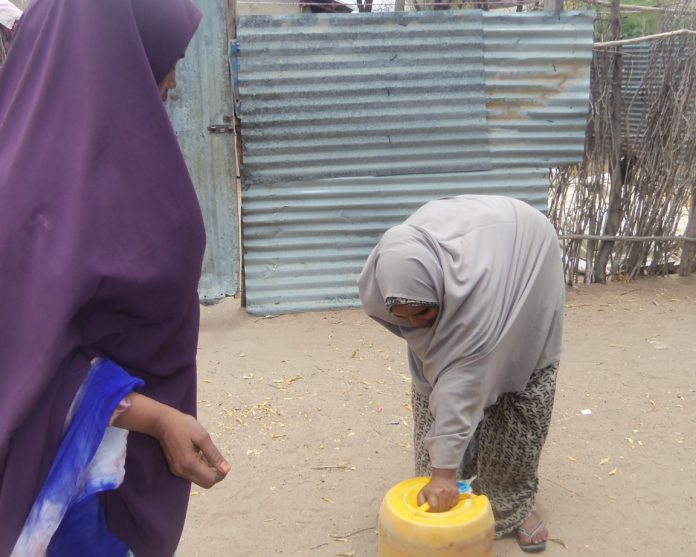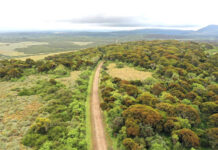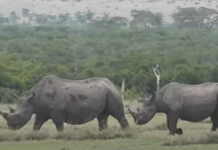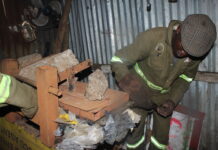By Mary Mwendwa
Garissa County, Kenya: Raho Yussuf holds her one and half-year-old baby girl in her arms. She soothes the baby as she quickly puts her down on a mattress laid down to continue with her daily chores. The scorching sun and high temperatures make her baby very uncomfortable. She cannot sleep or play. She wants attention from her mother.
She is wrapped in a grey scarf leaving only her face and part of her hands to be visible. Her baby too is wrapped in a black scarf on her head. This is how women in her community dress, it is a cultural and also a religious way of Islamic dressing.
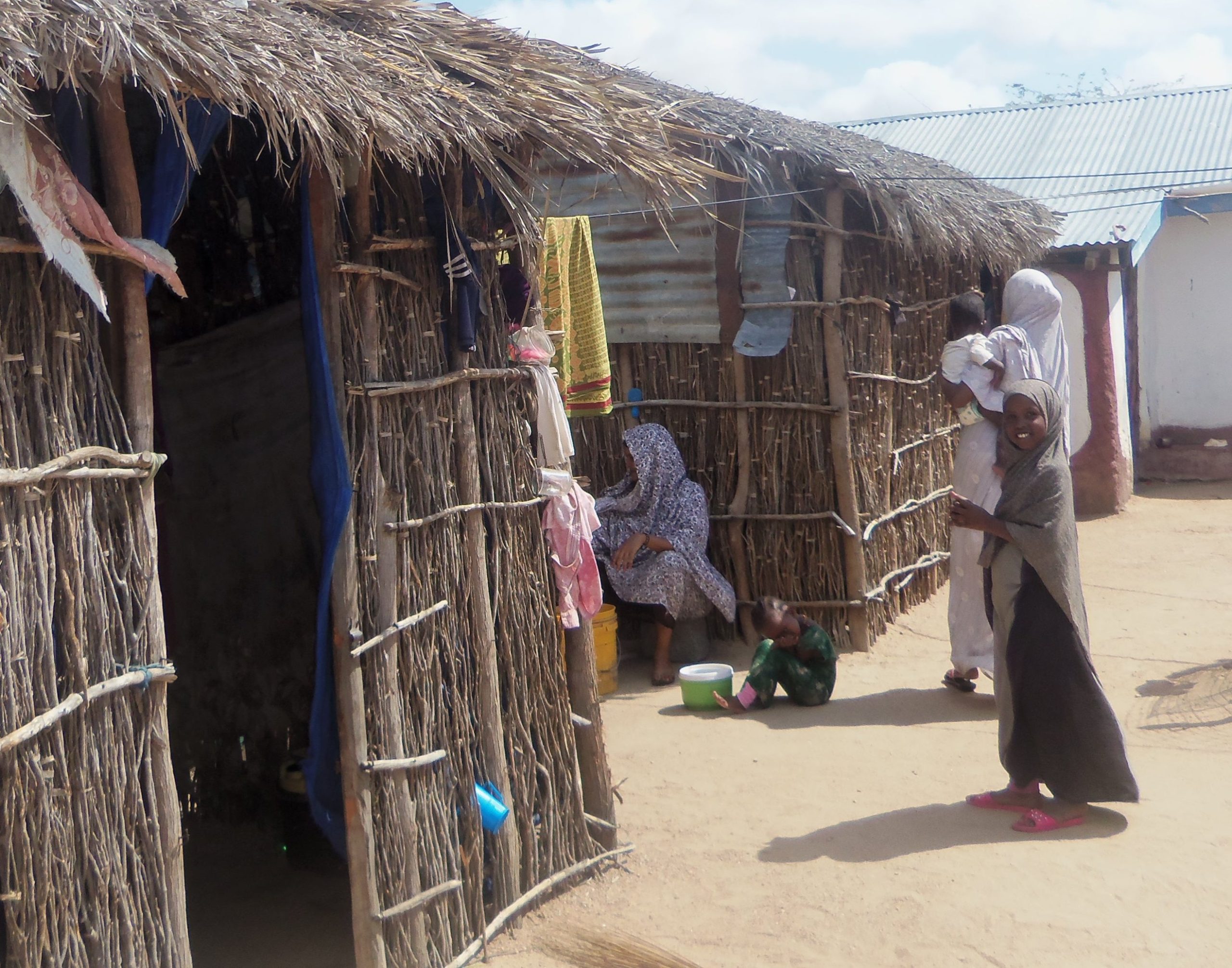
Her compound dotted with brown sand with no grass has on permanent house and another one made of sticks famously known as manyatta. Inside the manyatta mattresses and neatly laid down for family members to rest.
“ Our greatest challenge here in Garissa and the larger North Eastern region is a water shortage, we do not have water because of lack of rain. It is more difficult for me as a mother and woman because of my family roles which need water for me to be able to take care of my family well.”
Yussuf hails from Bula College village from Garissa County. Garissa County borders Somali and has been in the spotlight because of the Al Shabaab militants who have attacked and killed people in recent times.
She lives at her home with her extended family who owns lots of livestock that need to be taken care of.
“ We have much livestock that we need a lot of water to give and pasture. As you can see this region is dry, our young boys take the livestock very far to get water and pasture for them. I remain here tasked to prepare meals and do other chores that need lots of water.”
“Yussuf confesses that she does not put on masks together with her family. “ We do not have corona here, we see no point of masks and furthermore how can we wash hands often when water is a scarce commodity here, we have left it to God.”
Despite the water shortage challenge, Yussuf says that the coronavirus pandemic has hit them hard economically. “ We do not have money as we used to, businesses have closed and many people are now suffering.”
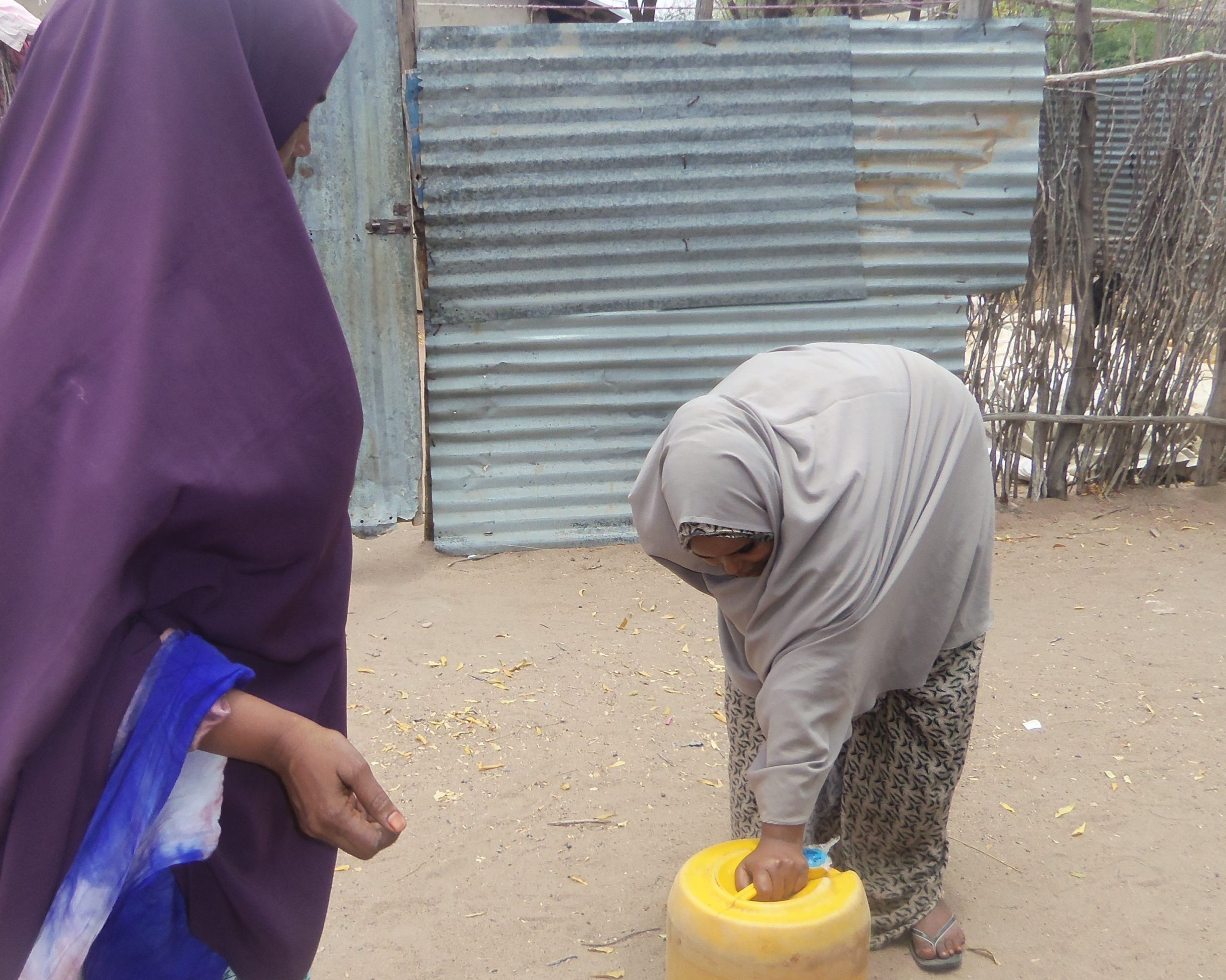
People here at Bula College village are pastoralists by nature, they keep livestock like camels, goats, and cows. According to one of the village elders Jaldesa Khalif in Bula College, they just hear of coronavirus infections and deaths, they are yet to witness and experience in their village.
“ We dot not have coronavirus here in Garissa, we just hear those figures on radio, we are safe here, you see we do not even have masks. Allah has been gracious to us.” She says.
At another village that is around 40 km from Garissa town, Korakora village, things are not any different. People here do not wear masks or observe COVID-19 rules like social distancing. “ Our greatest fear here is of Al Shabaab attacks, we live in fear every day.”
Garissa County has been in the spotlight for Al Shabaab militant activities because of its proximity to the Somalia border. On 2 April 2015, gunmen stormed the Garissa University College in Garissa, Kenya, killing 148 people, and injuring 79 or more. The militant group took responsibility for the attack.
This year in July Al Shabaab attacked and torched administration offices of the chief and District Officer, they also destroyed communication masts. We have no network here.” Ahmed Ali, a village elder narrates. Adding, “ You see we have a bigger problem to worry about than COVID-19, so far we have not seen any cases here. Let the government fight it in hotspot areas like Nairobi. Here we are worried about Al Shabaab attacks and drought only.”
Similarly in Garissa town center, which has become a business hub for the North Eastern Region, many still do not believe covid-19 is a reality. A spot check at the town, revealed many people have ignored social distancing and masking rules. Only when visiting government and other places like hospitals.
Mariam Hassan who is a business lady in town does not believe that COVID-19 is a reality.” We are tired of announcements every day, let our life continue, how can we wash hands often yet the water is scarce. An angry Hassan narrates. “ I buy water every day here, I do not have a budget for COVID-19 water.”
Kenya first reported its first coronavirus case in March 202o, since then more than 39,000 infections have been reported with more than 700 deaths. According to health officials, the curve is flattening however it not a reason for people to flaunt the rules.

